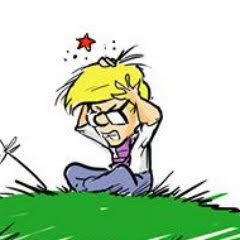We have “Patient Zero” for diseases but what is the term for someone who has a new genetic mutation?
Patient 1
“A person”. Every single person has genetic mutations that differentiate them from every other person. Now if their mutation happens to be wings or something, then I don’t know, ‘Bird-Person’ probably.
Neurodivergent (i am fully convinced this was the first mutation and it used to be really good until the very new digital age
).
Cancer patient.
You know what’s really wild? Every single person on the planet is a mutant, technically. All are completely novel combinations of genes that are VERY SIMILAR to their “human” parents, but with some changes here and there. Same for all life really. Except clones and mitosis, the cheaters.
Deleted by author
X-Original
I propose “startling” if the mutation is enough to qualify as a new species. Sort of like the opposite of an endling and you get a fitting double meaning as a fun bonus.
If there’s only one individual of a given species he cannot reproduce with anyone so he would be an endling at the same time.
Not necessarily. It’s way more complicated, and there’s no clear line. If you use that definition, then coyotes and wolves become the same species, for example.
It’s a important part of the definition:
species (noun):
A group of closely related organisms that are very similar to each other and are usually capable of interbreeding and producing fertile offspring.
Basically if you’re similar enough and can produce fertile offspring you’re considered the same species. This is why one a single mutation is unlikely to produce a new species. If the mutation has such great consequences that it produces new species by definition it cannot have fertile offspring with anyone else. And yes, it says ‘usually’, there are exceptions but I think this is how it works in general.
Mutant.
Scott Steiner.
they usually name the mutation/disease after the person, or the scientist/MD who discover it first and publishes it in a science journal,.
Such changes are called germ-line mutations because they occur in a cell used in reproduction (germ cell), giving the change a chance to become more numerous over time. If the mutation has a deleterious affect on the phenotype of the offspring, the mutation is referred to as a genetic disorder. Alternately, if the mutation has a positive affect on the fitness of the offspring, it is called an adaptation. [Nature]
I’m assuming you mean “mutation that gets passed down”. Whether a mutation is a disorder or an adaptation takes generations to determine, so we may not know the identity of the individual. Furthermore, what was once a disorder may become adaptive in a different environment and vice versa. In general, I suppose if it was adaptive, they might be called “ancestor” :)
More broadly, and outside of germ-line mutations (meaning it’s not passed down to offspring), everyone has cells with mutations. The person doesn’t have the mutation per se, but a cell or cluster of cells do, so identifying them by that mutation doesn’t make a lot of sense. If it’s bad, your body either kills it or it kills you (e.g. cancer). If it’s good, it likely doesn’t change anything significantly.
I dunno, Fred or something? It’s not like you can see mutations, typically.
Dead (usually before birth), if it’s a fatal factor. Nothing, if it’s not, because in practically all non lethal cases there’s no visible effect.
Mutant. not kidding.











